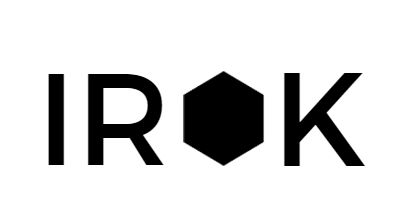After moving to SF, I jumped on the Silicon Valley bandwagon and became a Tim Ferriss groupie, developing an addiction to his brilliant podcasts. I listen to one of his longer interviews (1.5-2 hrs) during each of my morning workouts. To put my addiction into perspective - I've listened to each of his 250 episodes at least twice since moving here 1 year ago. I have a few favorites that I listen to once every couple months - conversations that put my mind in an especially inspired, positive place so I like to go back to them regularly. These include the interviews with Derek Sivers, Naval Ravikant, Scott Adams, Kelly Starrett, Peter Diamandis, Bryan Johnson, Mike Birbiglia, Luis Von Ahn, BJ Novak, Jocko Willink, and Tony Robbins.
I've internalized a lot of what I've learned from these fascinating peoples' life journeys and daily habits, e.g. productivity hacks, startup experience, consistent routines, investing methods, meditation techniques, values to live by, and formative book recommendations. One important thing I’ve realized from listening to these accomplished humans is that most smart, successful people are avid readers. I used to read when I was younger, primarily fiction, but I stopped when it became associated with homework and obligatory deadlines in high school and college.
Along with the Tim Ferriss podcasts, The Slight Edge by Jeff Olsen was the second catalyst that pushed me back into reading and seeing the boundless value in it. Olsen highlights that reading just 10 pages a day can lead to a PhD of knowledge over a period of a few years.
Seth Godin, a brilliant author and marketing mogul, argues that a book is the best bang for your buck you can get. For just $10-30, you gain insight into the mind of a brilliant writer, scientist, artist, inventor, CEO, or expert. And that information is now yours to digest and apply how you wish.
Samy Kamkar, a hacking master and entrepreneur, believes that school is inefficiently slow compared to reading and teaching yourself. He argues that sitting in a 1 hour lecture on algorithms 5 days a week, he could’ve taught himself a new language and built an application in the same semester using that time.
Naval Ravikant, founder of Angellist, said all knowledge is personal. The act of teaching alone causes you to formulate a system that sets the learners in a box. Bruce Lee dismantled his school that taught his form of fighting because he understood that learning has to be done to oneself.
Chase Jarvis says that we need the return of the polymath (e.g. Ben Franklin, Edison, Da Vinci). Society today breeds specialists. Our education system encourages knowledge in isolation in the form of majors, degrees, and subjects.
Here are the books I’ve read recently/are up next on my kindle –
Think and Grow Rich – Napolean Hill
0 to 1 – Peter Thiel
How to Win Friends and Influence People – Dale Carnegie
How to Talk to Anyone – Leil Lowndes
The Elegant Universe – Brian Greene
Sapiens – Yuval Noah Harari
Fountainhead – Ayn Rand
How to Stop Worrying and Start Living – Dale Carnegie
The 7 Habits of Highly Effective People – Stephen R. Covey
The Last Lion – William Manchester and Paul Reid
Anthem – Ayn Rand
The Inevitable – Kevin Kelly
The Art of Thinking Clearly – Rolf Dobelli
Snow Crash – Neal Stephenson
Words that Work – Frank Lunts
Thinking Fast and Slow – Daniel Kahneman
The Defining Decade – Meg Jay
Purple Cow – Seth Godin
Linchpin – Seth Godin
Surely you’re joking Mr. Feynman – Richard Feynman
The Power of Habit – Charles Duhigg
Do the Work – Steven Pressfield
The Hard Thing about Hard Things – Ben Horowitz
48 Laws of Power – Robert Greene
Bold – Peter Diamandis
The Magic of Thinking Big – David Schwartz
Speak like Churchill Stand like Lincoln – James C. Humes
Wizard of Menlo Park – Randall Stross
Benjamin Franklin: An American Life – William Isaacson
Guns Germs and Steel – Jarod Diamond
The Richest man of Babylon – George Samuel Clason
The Fish that Ate the Whale – Philip Everts
Titan the Life of John D. Rockefeller – Ron Chernow
